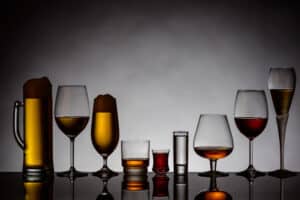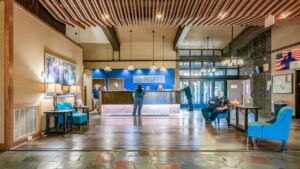Here’s something to keep in mind: near beer isn’t the answer you’re looking for. When it comes to drinking near beer, do yourself a favor and walk straight past it and keep going. It’s not what you want to be doing.
In fact, non-alcoholic beer is no good for someone struggling with alcohol, and especially not for anyone who drank a lot of beer. The truth is that non-alcoholic beer makes things harder for people with a drinking problem. At the same time comes the question: Can you drink non-alcoholic beer with medication? Let’s take a closer look at non-alcoholic beer.
Why Non-Alcoholic Beer Is Dangerous
Non-alcoholic beer might be the thing someone reaches for when they don’t want to leave behind the process of drinking, all the little pieces that come along. That routine can be powerful. And if you’re in recovery, then it’s key to be managing whatever might make your recovery harder. Some forms of treatment, like dialectical behavior therapy (DBT), put some tools into your mental toolbox to prepare for tough situations, but it also helps to know what hurdles you might be running up against.
The Smell of Any Type of Beer Can be a Trigger
People in recovery from alcohol have to work through quite a bit, that’s not a revelation or anything, you most likely knew it already. One of those things is the urge to drink. Sometimes it’s hard to put into words, but you know what I mean. That feeling, that kind of pulsing energy you get all through your body like it’s pushing you at the same time something else is pulling you, both in the same direction. There are a couple of reasons the urge to drink happens.
The first reason is what’s called “external triggers,” which means something that’s happening out there around you. They’re things that can bring up the urge to drink. That’s why smelling beer — literally just smelling it — can be dangerous for a person in recovery from alcohol use. It can kick off that urge to drink, it can put the sensations right into your body and brain that make you think, “Man, I want to have a drink.” Needless to say, that’s a big problem.
Non-Alcoholic Beer Still Contains Alcohol
Even though it’s referred to as “non-alcoholic,” most beers with that label do, in fact, contain some alcohol. Now, it’s not as much as a regular beer, and in fact, it’s not even half. The average beer usually has around 5% of alcohol by volume (ABV). Non-alcoholic beers are legally allowed to have .5% alcohol in them. That might seem insignificant, but it’s not when you are someone who is struggling with — or has struggled with — alcohol. Alcohol can end up conditioning your brain to feel certain things and to react in certain ways, so any alcohol consumed can produce that effect.
It Can Increase Your Risk For Relapse
Putting something like non-alcoholic beer into a situation already filled with potential craving triggers is one of the reasons it’s so dangerous. It is just adding temptation into a situation that can already be incredibly difficult. The National Institutes of Health suggest one of the best ways to decrease these risks of relapse and urges is to “avoid high-risk situations.”
Those situations are definitely going to include bars, clubs, parties, and the presence of non-alcoholic beer. Drinking a non-alcoholic beer can make you feel similar feelings to those you had in the past when you had a beer containing alcohol in your glass. And that is a situation where the urge to drink can pop up fast.
Can You Drink Non-Alcoholic Beer With Medication?
It’s a common question: can you drink non-alcoholic beer while taking medication? The answer is maybe. It depends on the type and amount of medication you’re taking.
Some medications, such as those used to treat high blood pressure, can interact with alcohol. Drinking alcohol while taking these medications can cause a dangerous change in blood pressure.
Other medications, such as some antidepressants, can cause drowsiness. Drinking alcohol while taking these medications can make the drowsiness worse.
If you’re taking any medication, it’s important to talk to your doctor or pharmacist about whether it’s safe to drink alcohol. In general, it’s best to err on the side of caution and not drink alcohol while taking medication.
Choosing Treatment Over Non-Alcoholic Beer
Struggling with drinking is a tough situation. It can take over your whole life, it can mess a lot of things up, and sometimes it feels like all you’re capable of doing is making things worse for yourself. Or maybe you feel too much shame, maybe because you’re worried about having “alcoholic nose,” and you think you’re not worthy of recovery. Trust us, that isn’t true, and you are worthy.
The truth is, you’re strong enough to start treatment and to get into recovery, both short- and long-term. The Bluffs knows it because our whole treatment model is based on using the strength inside you to help overcome those struggles. Your dedication and resilience are like rocket fuel for our treatment programs. We use dialectical behavior therapy (DBT) and cognitive behavioral therapy (CBT) to help you manage thoughts and emotions, but also to control how those two things relate to your actions. They’re both forms of therapy that have shown reliable results time after time which is why they are two of our core treatments.
We also offer medication-assisted treatment (MAT) which can help when detoxing from alcohol, ensuring it is safe and comfortable. If you’re looking for alcoholism treatment that includes medically supervised alcohol detox, comprehensive and evidence-based therapies, and a solid and safe path to long-term recovery, then give us a call at 330.919.9228. We’re ready to talk to you whenever, and we’re ready to show you how strong you are.








